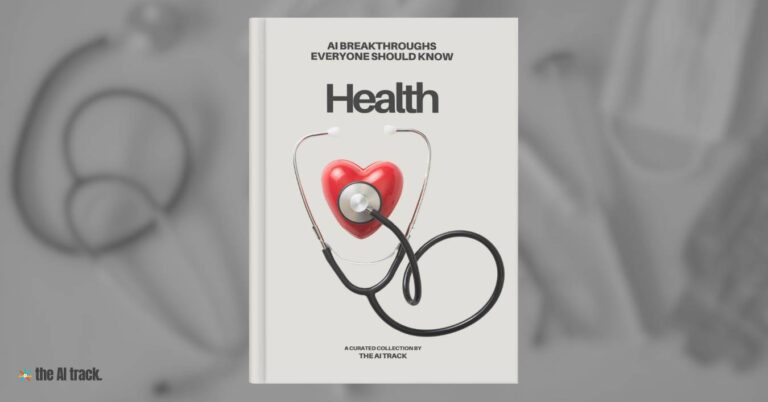Jump to Sections
Google’s Med-PaLM 2: The Dawn of AI-Enhanced Healthcare Dialogues
In the swiftly evolving realm of artificial intelligence, one innovation captures the spotlight: Google’s Med-PaLM 2. A cutting-edge medical AI chatbot that stands as a testament to transformative potential. Google’s Med-PaLM 2 takes healthcare interactions to uncharted territories, closing the gap between patients and medical insights, particularly in regions where physician access is limited.

Google’s Med-PaLM 2: An In-Depth Exploration
Emerging from the foundational PaLM 2 language model, Google’s Med-PaLM 2 boasts an intricate design tailored for complex medical inquiries. The strategic integration of Google’s Med-PaLM 2 within prestigious institutions, such as the Mayo Clinic, signifies its capacity to redefine the dynamics of patient-doctor interactions.
Informed by medical expert demonstrations, Google’s Med-PaLM 2 has undergone meticulous refinement to amplify its conversational dexterity. Notably, HealthTech Magazine attests to its ability to significantly curtail physicians’ time dedicated to routine queries, thus enabling them to concentrate on more intricate cases.
This specialized training helps Med-PaLM 2 provide reliable and nuanced responses to common medical questions, freeing up doctors’ schedules for patients with more complex conditions. The model can handle straightforward informational requests, prescription refills, lab follow-ups, and other frequent tasks.
Amidst a burgeoning landscape of AI chatbots, Google’s Med-PaLM 2 emerges as a standout performer. Google’s extensive research underscores its supremacy across a spectrum of performance metrics compared to previous medical AI systems.
Remarkably, Med-PaLM 2’s adeptness in logical reasoning and delivering consensus-backed responses parallels the capabilities of human medical professionals. Few, if any, AI assistants can match its combination of medical knowledge and language mastery required for replicating the patient-doctor experience.

Ensuring Data Privacy and Security:
In an age governed by digital privacy concerns, Google’s Med-PaLM 2 assumes a pivotal role. Its unwavering commitment to handling encrypted data ensures the utmost protection of sensitive patient information—an assurance reinforced by the insights of Digital Health Today.
As an AI system entrusted with personal medical data, stringent security measures are essential to Med-PaLM 2’s responsible deployment. Google engineers have implemented robust encryption, access controls, and other privacy technologies to safeguard confidential records.
Med-PaLM 2 operates on encrypted data, with decryption keys only made available to authorized parties. Even developers have limited access to prevent internal abuse. All user interactions undergo anonymization as well.
According to Digital Health Today, these precautions ensure Med-PaLM 2 sets a new standard for security in healthcare-focused AI. Patients can disclose sensitive information to the chatbot without fear of exposure or exploitation.
This peace of mind will be critical for convincing a public wary of data breaches to embrace the benefits of emerging medical AI. By engineering Med-PaLM 2 to honor privacy from the start, Google aims to earn patient trust and onboard healthcare providers gradually.
Adoption by prestigious institutions like the Mayo Clinic also validates Med-PaLM 2’s security model. Doctors worldwide can feel confident using this AI without compromising their Hippocratic oath to protect patient confidentiality.

Balancing Promise and Limitations:
Beyond prestigious institutions, Google’s Med-PaLM 2 emerges as a beacon of hope for regions grappling with healthcare accessibility. Its potential to revolutionize healthcare delivery is illuminated by a World Health Organization study addressing the global scarcity of healthcare professionals.
While the horizon gleams with promise, Google’s Med-PaLM 2 remains grounded in acknowledging its constraints. Sporadic inaccuracies serve as a poignant reminder that AI serves as a tool for augmentation, not a substitute for human expertise. Google’s senior research director, Greg Corrado, echoes this perspective, underscoring the chatbot’s supplementary role.
AI in Healthcare: The Path Forward:
Google’s Med-PaLM 2’s ongoing testing phase stands as a crucible for refinement. Insights gathered from institutions like the Mayo Clinic will be instrumental in honing its capabilities. Google’s overarching vision entails expanding AI’s imprint in healthcare, cultivating precise, timely, and universally accessible medical consultations.
AI has already made significant contributions to healthcare (read our analysis here). Beyond the initiative Google’s Med-PaLM 2, some AI diagnostic tools are:
- DeepMind’s AI can predict patient outcomes 48 hours earlier than human doctors.
- IDx’s AI detected diabetic retinopathy on par with expert ophthalmologists.
- Viz.ai‘s stroke-detecting AI identifies blockages minutes after a scan.
- Researchers at NYU have unveiled NYUTron, a cutting-edge AI model capable of making critical predictions based on medical notes
- A magnifying lens equipped with artificial intelligence (AI) technology can rapidly detect skin cancer in NHS patients.
- K Health’s AI chatbot is revolutionizing the diagnostic process, serving as a digital assistant to doctors.
- AI algorithms have been developed to detect early signs of Alzheimer’s disease by analyzing brain scans . Another study found that AI could predict the onset of heart disease with 90% accuracy by analyzing retinal images. The AI Alzheimer’s App is a groundbreaking tool in the realm of early Alzheimer’s detection. It utilizes advanced algorithms to analyze user behaviors, identifying early cognitive shifts. Its potential isn’t limited to Alzheimer’s, hinting at a digital future for various neurological disorders.
The Global AI Healthcare Market
The global AI healthcare market is expected to grow significantly in the coming years, driven by increasing demand for AI-powered solutions to improve healthcare outcomes and reduce costs.
The market size of the AI healthcare industry was valued at USD 15.1 billion in 2022 and is expected to reach USD 187.95 billion by 2030, growing at a compound annual growth rate (CAGR) of 41.5%. The growth of the market is also expected to have an impact on the development of new AI technologies for medicine.
Driving this AI healthcare frenzy:
- The pandemic spotlighted shortcomings in traditional healthcare systems. AI offers solutions.
- Medical data is exploding – and AI can find insights humans never could.
- Studies show AI can improve patient outcomes, operational efficiency, and costs.
Specific AI healthcare applications leading the charge:
- Robot-assisted surgery: da Vinci surgical robots have conducted 8+ million procedures worldwide. The global surgical robotics market could hit $14B by 2027.
- Clinical decision support: AI can analyze patient data and suggest diagnoses or treatments for doctors. The clinical decision support system market may reach $2.4B by 2027.
- Administrative workflow assistance: AI chatbots and intelligent workflow apps reduce clinicians’ administrative burdens. This market segment could hit $4.7B by 2027.
But healthcare AI does face challenges like regulatory uncertainty, data quality issues, and physician resistance.
Still, the benefits appear to outweigh the risks for many providers. So if the analysts are right, healthcare AI could soon be coming to a hospital near you.
Conclusion:
Google’s Med-PaLM 2 serves as a vanguard in reshaping healthcare dialogues through AI. Offering a tantalizing glimpse into the horizon of medical consultations, its trajectory mandates relentless refinement, astute assimilation of feedback, and a nuanced understanding of its capacities and constraints.
Key Takeaway
Google’s Med-PaLM 2 encapsulates the profound influence of AI on healthcare. With its finely-tuned competencies, it bears the potential to elevate patient-doctor interactions, alleviate the burden of mundane inquiries, and tackle global healthcare obstacles. Nonetheless, the inescapable truth prevails: while AI complements medical proficiency, human discernment remains irreplaceable.






